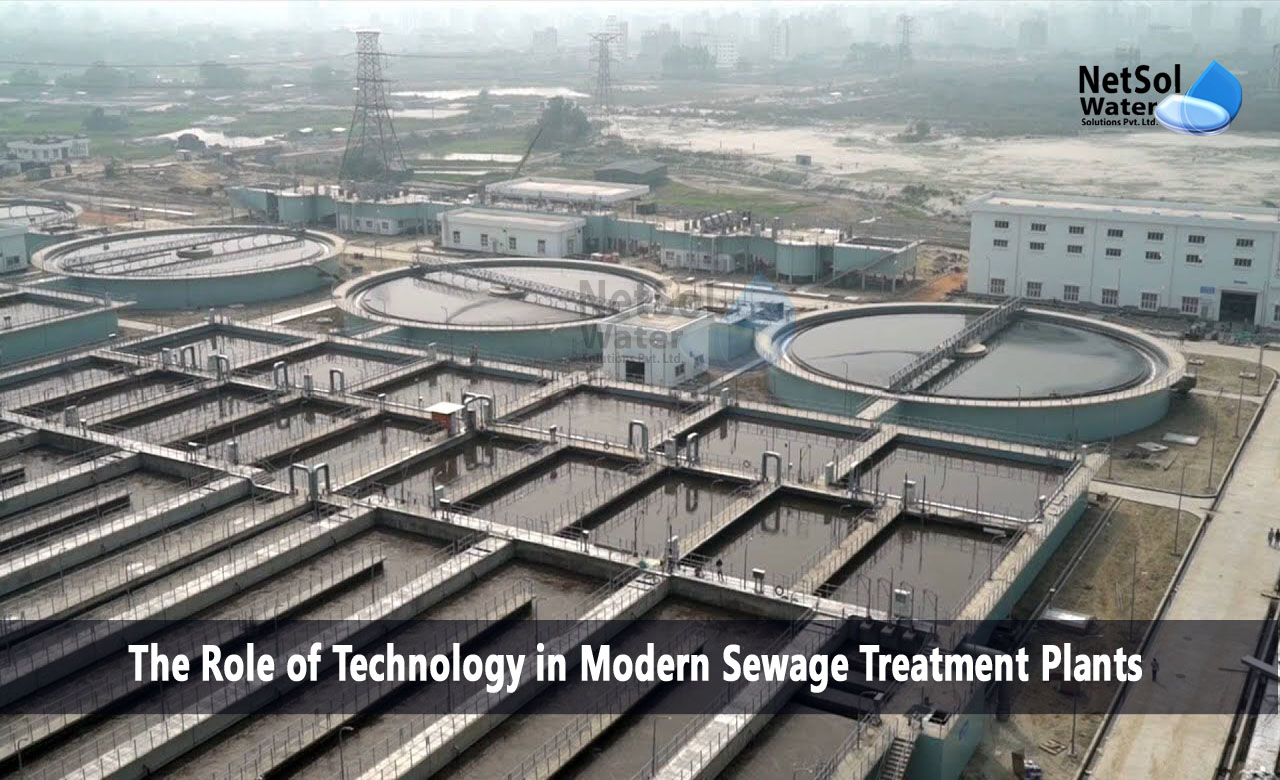What is the Role of Technology in Modern STP Plants?
Sewage treatment plants are critical infrastructure that ensures the safe and sustainable management of wastewater. In recent years, technological advancements have revolutionized the way sewage treatment plants operate, making them more efficient, environmentally friendly, and capable of producing valuable resources.
In this blog post, we will explore the role of technology in modern sewage treatment plants and how these advancements are shaping the future of wastewater management.
1- Advanced Process Monitoring and Control
Technology has enabled real-time monitoring and control systems in sewage treatment plants, allowing operators to optimize treatment processes and ensure efficient operation. Sensors and automated systems monitor parameters such as pH levels, dissolved oxygen, temperature, and turbidity, providing valuable data to operators for process optimization. This data-driven approach improves treatment efficiency, reduces energy consumption, and minimizes chemical usage, leading to cost savings and environmental benefits.
2- Membrane Filtration and Advanced Separation Techniques
Membrane filtration technologies, such as ultrafiltration and microfiltration, have revolutionized wastewater treatment. These technologies utilize porous membranes to separate suspended solids, bacteria, and viruses from the wastewater. Membrane bioreactors (MBRs) combine biological treatment with membrane filtration, resulting in higher effluent quality and reduced footprint compared to conventional treatment processes. These advanced separation techniques enhance treatment efficiency, produce high-quality effluent, and enable the removal of micropollutants, contributing to improved water quality.
3- Anaerobic Digestion and Biogas Recovery
Anaerobic digestion is a technology that breaks down organic matter in the absence of oxygen, producing biogas as a byproduct. Modern sewage treatment plants utilize anaerobic digestion to convert sewage sludge into biogas, which can be used for electricity generation or as a renewable energy source. Biogas recovery not only reduces greenhouse gas emissions, particularly methane, but also provides a sustainable energy source for the plant's operations or the local grid. Furthermore, the digestion process stabilizes the sludge, reducing its volume and making it easier to manage.
4- Nutrient Recovery and Resource Reuse
Advancements in technology have enabled the recovery of valuable resources, such as nitrogen and phosphorus, from wastewater. Innovative processes, including struvite precipitation and ion exchange, allow for the extraction of these nutrients from the wastewater and their conversion into environmentally friendly fertilizers. Nutrient recovery not only reduces the environmental impact of nutrient discharge but also contributes to a circular economy by transforming waste into valuable resources.
5- Intelligent System Integration and Automation
Modern sewage treatment plants are increasingly adopting intelligent system integration and automation to streamline operations and improve overall efficiency. Supervisory control and data acquisition (SCADA) systems enable centralized monitoring and control of various plant processes, optimizing energy usage, and reducing manual intervention. Automation of tasks such as sludge dewatering, chemical dosing, and equipment maintenance improves process reliability, reduces human error, and enhances safety for plant personnel.
Conclusion
Technology has transformed the wastewater industry, empowering sewage treatment plants to operate more efficiently, sustainably, and economically. Advanced process monitoring and control, membrane filtration, anaerobic digestion, nutrient recovery, and intelligent system integration are just a few examples of how technology has revolutionized modern sewage treatment plants. These technological advancements not only improve treatment efficiency and water quality but also contribute to resource recovery, renewable energy generation, and environmental sustainability.
As we move forward, continued investment in research and development is essential to unlock further technological innovations. By embracing these advancements, sewage treatment plants can continue to play a pivotal role in protecting public health, preserving the environment, and building a more sustainable future.
Netsol Water is Greater Noida-based leading water & wastewater treatment plant manufacturer. We are industry's most demanding company based on client review and work quality. We are known as best commercial RO plant manufacturers, industrial RO plant manufacturer, sewage treatment plant manufacturer, Water Softener Plant Manufacturers and effluent treatment plant manufacturers. Apart from this 24x7 customer support is our USP. Call on +91-9650608473, or write us at enquiry@netsolwater.com for any support, inquiry or product-purchase related query.



